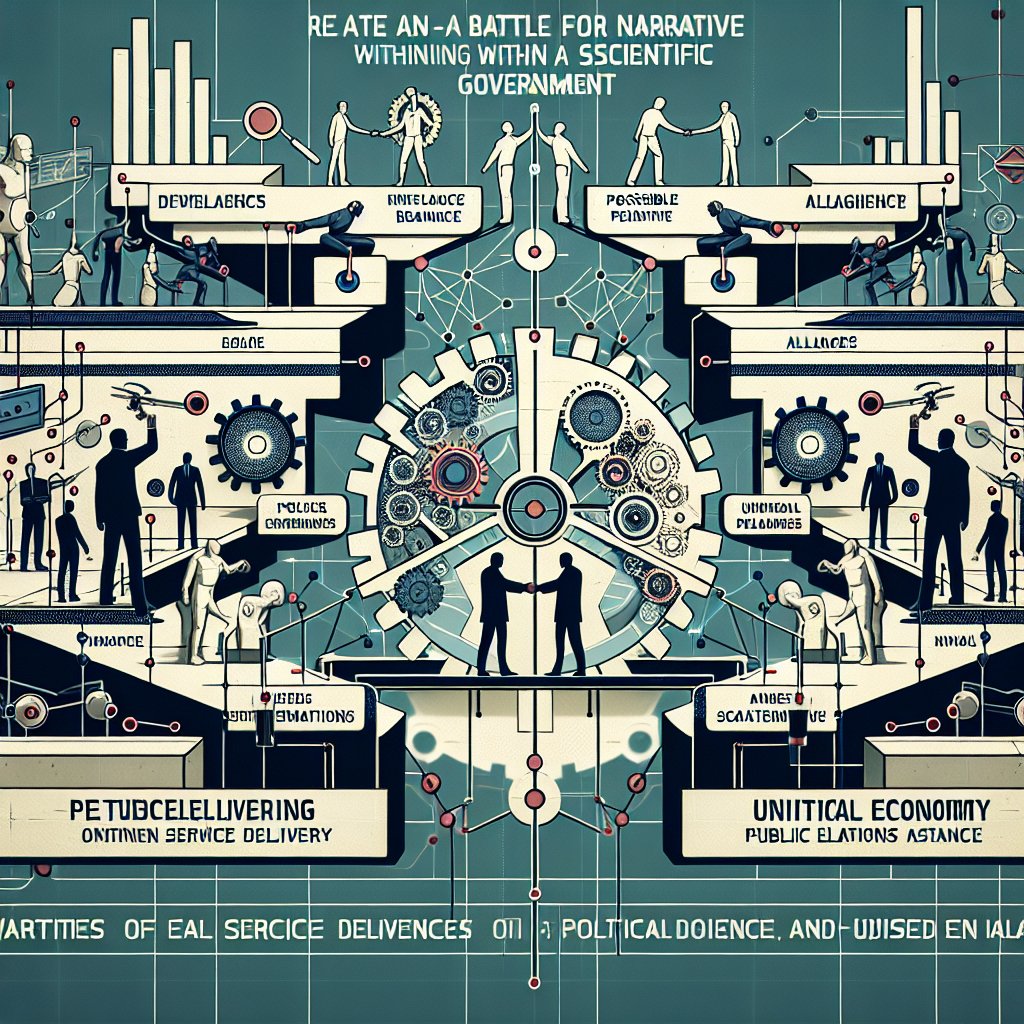Image created by AI
Coalition Controversy: ANC and DA Clash Over Control and Partnerships in South Africa's GNU
In what can be described as a battle for the narrative within South Africa’s government of national unity (GNU), internal strife has become the order of the day between the African National Congress (ANC) and the Democratic Alliance (DA). The ANC's insistence on complete dominion over the GNU stands challenged by the DA's claim of co-governing on equal footing, underscoring the tenuous nature of political coalition dynamics in the country.
According to the ANC's acting national spokesperson Zuko Godlimpi, the GNU is an ANC initiative that graciously includes other political entities. The ANC's positioning as the progenitor and leader of this alliance seems to be a strategic maneuver aimed at maintaining a dominant political and ideological stance.
Contrastingly, Helen Zille of the DA is asserting that the political collaboration is in fact an equal partnership between the two main parties, a perspective that has provoked a strong rebuttal from the ANC. This portrayal of the coalition belies the suggestion that smaller parties involved are of lesser significance, sparking further contention.
University of KwaZulu-Natal’s political lecturer, Zakhele Ndlovu, identifies the coalition as a partnership, albeit one that the ANC is reluctant to equalize. He posits that the ANC's strategy of engaging smaller parties in the GNU is an attempt to mitigate the impression of collusion with the DA, a party perceived historically as representing white interests in the racially conscious political landscape of South Africa.
Furthermore, Ndlovu advises that DA leaders such as John Steenhuisen need to strengthen their service delivery to gain traction among skeptical black voters, thus enhancing the GNU's credibility.
In a display of political reflexivity, President Cyril Ramaphosa characterized the GNU as a unique formation, distinct from typical coalitions, at the ANC national executive committee meeting in Boksburg. Under the current structure, the GNU presents itself as a tactical move aimed at societal betterment, echoing the president’s position.
Meanwhile, political economy analyst Daniel Silke raises the specter of a precarious balance within the GNU. Should the DA opt out, the ANC would likely find itself in new and potentially challenging alliances with populist parties such as the Economic Freedom Fighters (EFF) and uMkhonto weSizwe party. He also observes the ANC's wariness over accusations of selling out, suggesting that both parties have a vested interest in the GNU’s persistence while facing pressure to distinguish their identities within the alliance.
At the national level, the DA is grappling with justifying its coalition concessions to its base, balancing the prospect of an ANC-EFF coalition against governing inputs commensurate with its electoral outcomes.
The intricate dance of alliance politics continues to pervade South Africa’s GNU, with its success pivotally hinged on effective delivery of services and a unified public relations stance. As the two leading parties navigate the complex political terrain, the future of this coalition, as well as its potential impact on the lives of the South African populace, remains uncertain.










